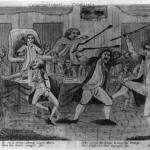 |
U.S. v. Lyon, U.S. v. Cooper, and U.S. v. Callender: The Sedition Act Trials – The rise of political parties and the threat of war raise questions about the rights of free speech and a free press.
|
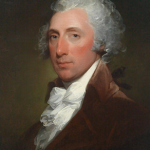 |
United States v. Smith and United States v. Ogden – Low politics and high diplomacy meet in the controversial trials of Federalists accused of violating American neutrality in the Age of Revolution.
|
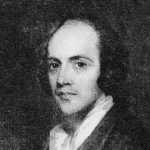 |
U.S. v. Aaron Burr: The Treason Trial – John Marshall presides over the treason trial of a former vice president, and the subpoena of President Thomas Jefferson threatens the balance of judicial and executive authority.
|
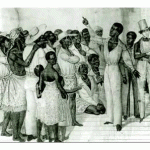 |
The Amistad: The Mende Slave Revolt – A group of enslaved Africans, who broke free of their captors, enter a federal court proceeding that will determine whether slave property rights are protected by federal law.
|
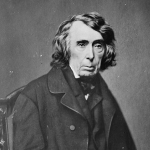 |
Ex parte Merryman: Habeas Corpus During the Civil War – In the opening weeks of the Civil War, the Chief Justice of the United States publicly challenges President Lincoln to protect the civil liberties of a Confederate sympathizer.
|
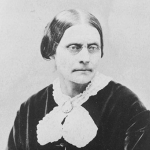 |
U.S. v. Susan B. Anthony: The Fight for Women's Suffrage – When the leading advocate of woman suffrage votes in a federal election, a federal court must decide what political rights are protected by the Constitution.
|
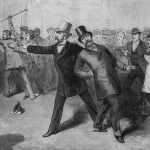 |
United States v. Guiteau: Assassination and Insanity in Gilded Age America – The first judicial trial of a presidential assassin forces the courts to defend their independence and define the bounds of criminal insanity.
|
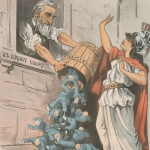 |
Chew Heong v. U.S.: Chinese Exclusion and the Federal Courts – A Chinese immigrant's petition to reenter the United States divides a California federal court and forces the Supreme Court to decide if immigrants' rights are protected by the nation's treaties.
|
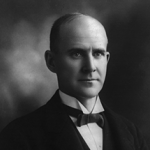 |
In re Eugene V. Debs: The Pullman Strike and American Railway Union Boycott – In the depths of an economic depression, government attorneys seek court orders to halt a strike, and labor leaders defend the right of unions to organize and represent the interests of workers.
|
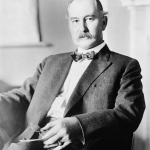 |
U.S. v. Albert B. Fall: The Teapot Dome Scandal – Corrupt deals for drilling rights in naval oil reserves spark a national scandal and give rise to a host of civil and criminal trials in the federal courts.
|
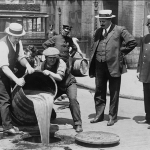 |
Olmstead v. U.S.: The Prohibition Trial of a Seattle Bootlegger – The trial of a well-known bootlegger increases public doubts about the "Noble Experiment" and presents the courts with questions about civil liberties in the age of telecommunications.
|
 |
Gobitis v. Minersville School District and Barnette v. West Virginia State Board of Education: The Flag Salute Cases – School children objecting to flag salute laws in the 1930s and 40s challenge and then change the judiciary’s approach to the Constitution’s protection of freedom of conscience.
|
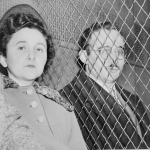 |
U.S. v. Julius Rosenberg: The Atomic Spy Trial – The trial of three Communists accused of conspiring to spy for the Soviet Union reflects fears of nuclear war, Soviet aggression, and Communist subversion during the Cold War.
|
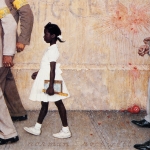 |
Bush v. Orleans Parish School Board: The Desegregation of New Orleans Public Schools – The federal courts' enforcement of the landmark Brown decision provokes a prolonged struggle over state and federal authority.
|
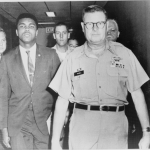 |
U.S. v. Cassius Clay: Muhammad Ali's Fight against the Vietnam Draft – Boxing legend Muhammad Ali objects to serving in the military in Vietnam, incurring the anger of the American public and risking a five-year prison term for his religious and political beliefs.
|
 |
U.S. v. Dellinger: The Chicago Seven Conspiracy Trial – Organizers of demonstrations at the 1968 Democratic Convention are charged with inciting riots, and an unorthodox trial reflects the cultural and political divisions of the era of the Vietnam War.
|
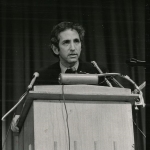 |
U.S. v. New York Times: The Pentagon Papers – The publication of secret government documents about the Vietnam War leads to a federal court conflict pitting national security against freedom of the press.
|

















